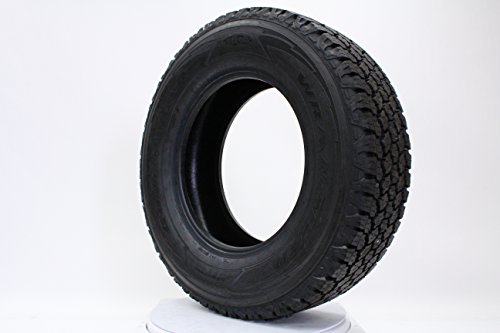
BFGoodrich All Terrain T/A KO2 Radial Car Tire for Light Trucks, SUVs, and Crossovers, 30x9.50R15/C ...
BFGoodrich All Terrain T/A KO2 Radial Car Tire for Light Trucks, SUVs, and Crossovers, 30x9.50R15/C ...
BFGoodrich All Terrain T/A KO2 Radial Car Tire for Light Trucks, SUVs, and Crossovers, LT245/65R17/D...
All Terrain Tires are designed to perform well in both on-road and off-road conditions, making them the perfect choice for drivers who frequently venture off-road. But with so many options on the market, choosing the right set of all-terrain tires can be daunting. In this article, we'll provide valuable tips for selecting the best all-terrain tires for your vehicle and driving needs.
Determine Your Terrain
Before selecting all-terrain tires, you need to determine the type of terrain you will frequently encounter. Will you be mostly driving on loose dirt, sand, gravel, or muddy off-road trails? Or will you be navigating through rocky terrain or climbing steep inclines in the backcountry? Knowing this information will help you choose the right type of all-terrain tire for your driving needs.
Tread Pattern
One of the most important factors to consider when choosing all-terrain tires is the tread pattern. Tread patterns are designed to provide optimal traction in specific conditions. Some tread patterns are more suitable for loose or muddy terrain, while others are better for rockier terrain. Be sure to choose a tire with a tread pattern that matches the type of terrain you will frequently encounter.
MT vs. AT Tires
Within the all-terrain tire category, there are two primary types: Mud Terrain (MT) and All-Terrain (AT) tires. Mud Terrain tires are designed for extreme off-road conditions, including rock crawling, deep mud, and snow. These tires generally have a more aggressive tread pattern with wider and deeper grooves. All-Terrain tires are designed for a mixture of on-road and off-road driving conditions, providing a balance of performance in both environments. An AT tire's tread pattern is usually less aggressive than an MT tire, with a shallower and narrower groove.
Tire Size
It's critical to choose the right size all-terrain tire for your vehicle. Using a tire size that is not recommended for your vehicle can lead to handling problems and other safety issues. Before buying all-terrain tires, check your vehicle's owner manual for the correct tire size. Alternatively, you can check the tire placard located on the driver-side doorjamb or the manufacturer's website for the recommended tire size.
Load Rating and Speed Rating
Another crucial consideration when choosing all-terrain tires is the load capacity and speed rating. Load capacity refers to the amount of weight a tire can safely support while maintaining optimal performance. Speed rating is the maximum speed a tire can safely maintain for a prolonged period. Before selecting all-terrain tires, check your vehicle's recommended load rating and speed rating, and choose a tire that matches the manufacturer's recommendations.
Price
All-terrain tires can vary significantly in price, with some high-end models costing several hundred dollars per tire. While it's tempting to go for the most affordable option, investing in a high-quality, all-terrain tire can pay off in the long run with better performance, handling, and durability. Consider the value and features of a tire when comparing prices, rather than just the bottom line.
Warranty
Lastly, consider the warranty when selecting all-terrain tires. A tire with a comprehensive warranty can give you peace of mind, knowing that your investment is protected against any defects or irregularities. Look for a warranty that covers the tire for its intended lifespan and includes an unconditional satisfaction guarantee.
Conclusion
In summary, choosing the right all-terrain tire for your vehicle and driving needs requires careful consideration of various factors. Be sure to determine the type of terrain you'll be driving on, the tread pattern that matches the terrain, the correct tire size, load rating, and speed rating, the value and price of the tire, and the warranty coverage. Armed with these valuable tips, you can confidently select the best all-terrain tire for your vehicle and enjoy better performance, handling, and durability on and off the road.
Related Topics You Might Like



















